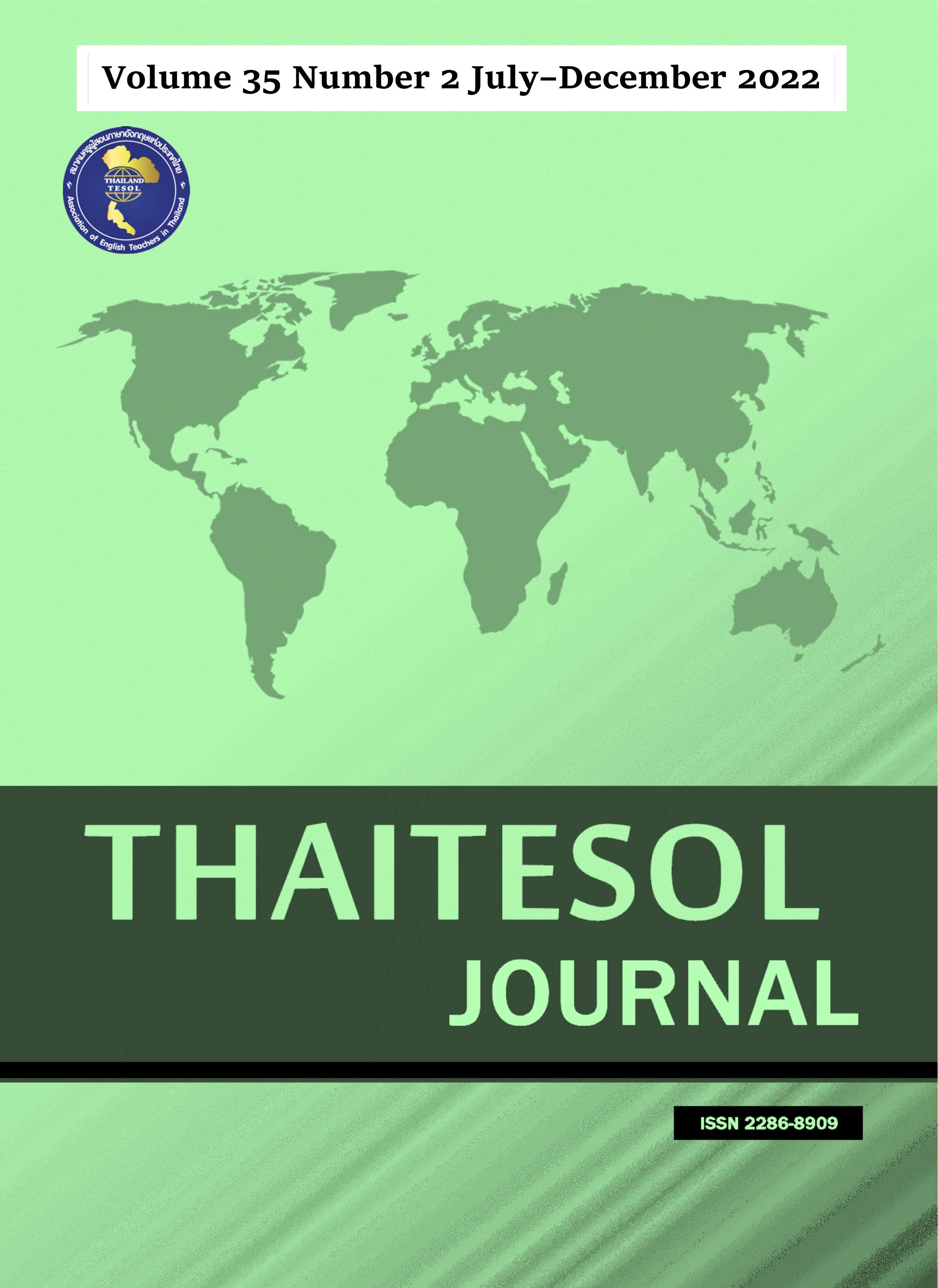Exploring EFL Teachers’ Roles and Practices in Promoting Student Engagement
Main Article Content
Abstract
This case study is aimed at exploring EFL teachers’ perceptions of their roles and practices in promoting student engagement in both conventional and online classes in the Thai context. Qualitative data were collected through in-depth semi-structured interviews with a total of eight EFL teachers (four Thai, and four non-Thai) working at a language institute of a leading public university in Bangkok, and a focus group with three EFL teachers. Content analysis was used to analyze the data. This study concludes that “serving as a facilitator” is considered the most important role by the majority of participants as far as promoting student engagement, followed by acting as a content provider. Regarding teaching practices, the participants overwhelmingly adopted the active learning approach, and there are several factors underpinning their decisions about teaching approaches to promote student engagement including course content, course objectives, students’ proficiency and learning styles, as well as course assessment. Contrary to the general assumption stating teachers’ personal preconceived beliefs would affect their pedagogical choices, the participants in this study tended to focus on what appeared to work best for their students to promote their language learning rather than what they considered the commonly accepted approach to take. This study provides insights into the challenges faced by EFL teachers in promoting student engagement specifically in the online learning environment and the strategies they employed to overcome such challenges. Pedagogical implications and recommendations for further research are also provided in this study.
Article Details

This work is licensed under a Creative Commons Attribution-NoDerivatives 4.0 International License.
Materials in THAITESOL JOURNAL may be photocopied for educational purposes. Under no circumstances may any part of this journal be photocopied for commercial purposes.


